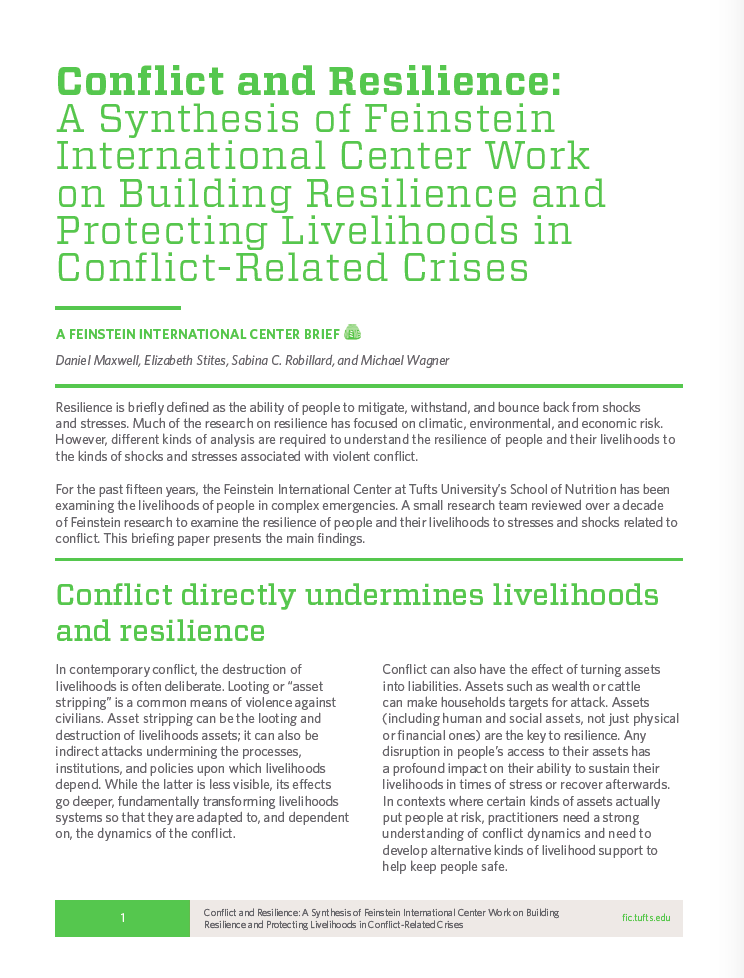This is a briefing paper of the full report.
Resilience is defined as the ability of people to mitigate, weather, and “bounce back” from shocks or adversity. This definition is framed in terms of understanding capacities and risk—often particularly climactic, environmental, and economic risk. However, understanding the resilience of people and their livelihoods to the kinds of shocks and stresses associated with violent conflict requires a different set of analyses. This paper reviews more fifteen years of research by the Feinstein International Center to examine the nexus of conflict, livelihoods, and resilience. Its key findings are as follows:
- Conflict directly undermines livelihoods and resilience
- Conflict affects civilian livelihoods through displacement
- Conflict is not the only factor undermining the resilience of crisis-affected households
- Social networks affect resilience in the face of conflict
- Post-conflict dynamics can also limit livelihoods recovery
- Investing in livelihoods cannot alone stabilize conflict-affected societies
This paper was made possible by the generous support of the American people through the United States Agency for International Development (USAID) Center for Resilience. The contents do not necessarily reflect the views of USAID or the United States Government.







